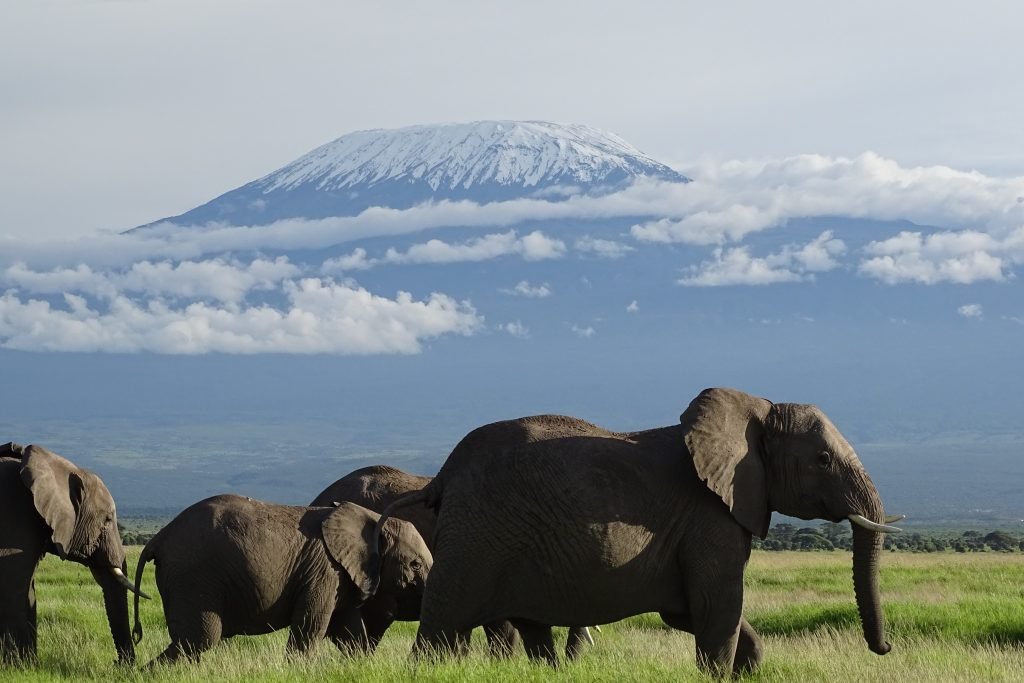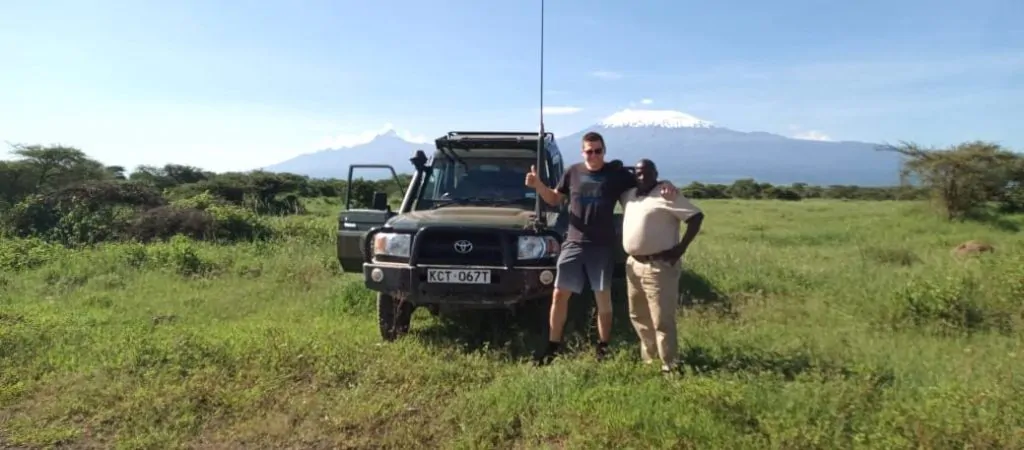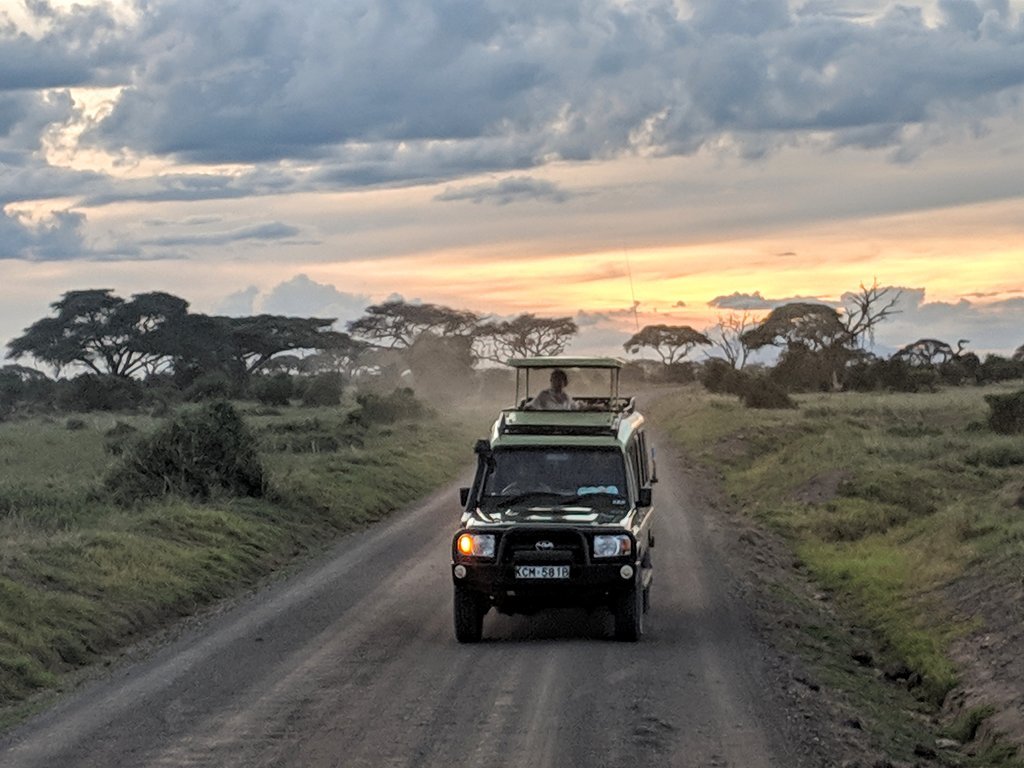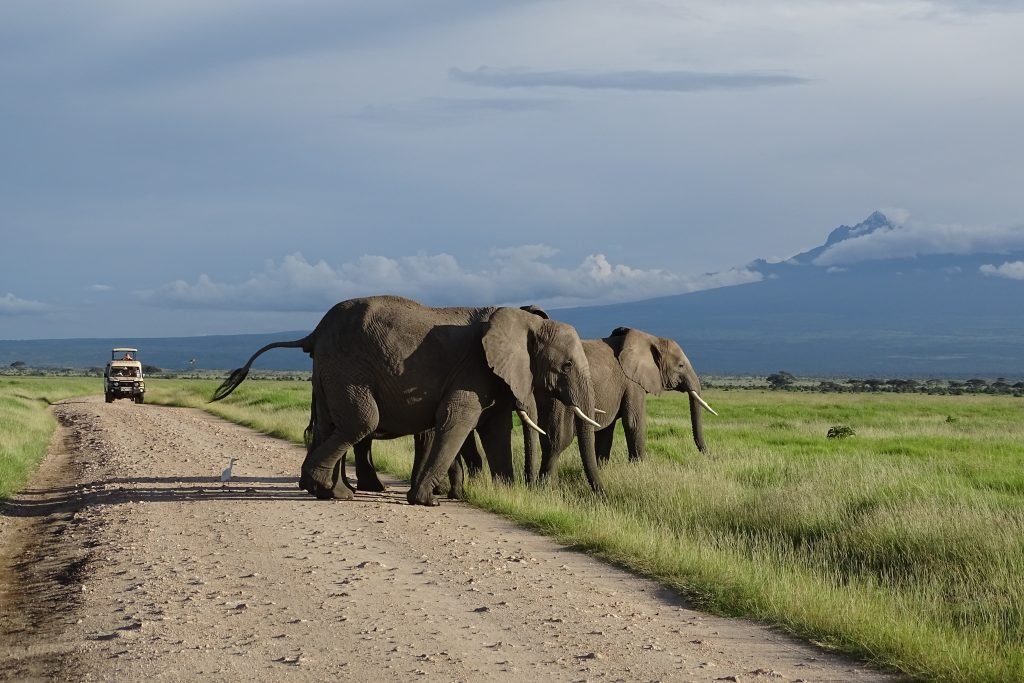Best Time to Visit Amboseli National Park for Safaris
Amboseli National Park is one of Africa’s most iconic safari destinations — famous for its huge elephant herds grazing against the backdrop of Mount Kilimanjaro. But if you’re planning your safari, you’re probably wondering: what’s the best time to visit Amboseli?
The answer depends on what kind of safari experience you’re looking for. Amboseli has two main seasons — the dry season and the green (wet) season — and each offers unique wildlife encounters, landscapes, and photography opportunities.



Dry Season in Amboseli (June – October, January – February)
- Best for: Wildlife viewing, Big Five safaris, photography.
- Why: During the dry months, animals gather around permanent water sources like Amboseli’s swamps, making them easy to spot.
- Highlights:
- Large elephant herds with snow-capped Kilimanjaro in the background.
- Excellent predator sightings (lions, cheetahs, hyenas).
- Clear skies for photography.
- Tip: This is peak season, so book your Amboseli safari early to secure the best lodges.
Ready to experience Amboseli at its best? Check out our 3 Days Amboseli Safari Package
Green Season in Amboseli (November – May)
- Best for: Birdwatching, lush landscapes, fewer tourists.
- Why: Short rains (Nov–Dec) and long rains (Mar–May) transform Amboseli into a green paradise. Migratory birds arrive, and the park feels quieter and more intimate.
- Highlights:
- Over 400 bird species, including flamingos.
- Young animals are born, offering exciting predator-prey action.
- Lower safari rates and fewer crowds.
- Tip: Roads can be muddy, so choose lodges with 4×4 safari vehicles.
Want a more exclusive safari experience? Travel during the green season with our tailor-made Amboseli safaris.
Amboseli Migration and Wildlife Movements
Unlike the Serengeti or Masai Mara, Amboseli doesn’t have a dramatic wildebeest migration. Instead, its magic lies in the seasonal movement of elephants and herbivores between Amboseli’s marshes and surrounding conservancies.
- In the dry season, elephants concentrate in Amboseli’s wetlands.
- In the wet season, they move to the surrounding plains, spreading out across the ecosystem.
This means you’ll always see elephants in Amboseli — but the setting and experience changes by season.
Dry vs. Green Season Amboseli – Which Should You Choose?
| Safari Factor | Dry Season | Green Season |
|---|---|---|
| Wildlife viewing | Easier, animals concentrated | Spread out, but more dramatic landscapes |
| Photography | Clear skies, iconic Kilimanjaro views | Lush greenery, dramatic sunsets |
| Birdwatching | Good, but less variety | Best season for migratory birds |
| Safari costs | Higher (peak season) | More affordable (low season deals) |
| Crowds | Busier, especially July–Aug, Dec holidays | Fewer tourists, quieter lodges |
So, When is the Best Time to Visit Amboseli?
If your priority is seeing big game and photographing elephants under Kilimanjaro, the dry season (June–Oct, Jan–Feb) is ideal.
If you want fewer crowds, better rates, and incredible birding, the green season offers unique rewards.
Either way, Amboseli delivers an unforgettable safari — it just depends on your travel style.
Plan Your Amboseli Safari Today
At Annest Kenya Safaris, we design tailor-made Amboseli tours that fit your style — whether you want a luxury fly-in safari, an affordable Amboseli safari packages, or a custom bush-and-beach combo.
Call us | WhatsApp us instantly | [Request a Free Quote]
Ready to see Amboseli’s elephants with Kilimanjaro views?
Check out our
3 Days Amboseli Safari Package
2 Days Amboseli Safari Package.
1 Day Amboseli Safari Package.
FAQs About Visiting Amboseli
Yes — while wildlife may spread out, the landscapes are stunning, lodges are quieter, and birdlife is spectacular.
Clear views are most common in the early morning (around sunrise) and during the dry season when skies are cloud-free.
July–October and January–February are the most popular months, but November and April are perfect for travelers who prefer fewer crowds.
Absolutely — Amboseli pairs beautifully with Tsavo East/West, Masai Mara, and Nairobi National Park.


